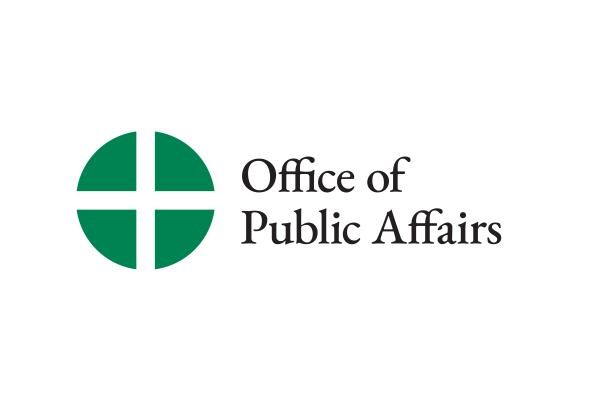Mid Atlantic Muslim-Catholic Dialogue Approves Document On Marriage
WASHINGTON (May 11) -- The Mid Atlantic Dialogue of Muslims and Catholics met at Immaculate Conception Center, Douglaston, NY, April 17-19, 2007, to conclude its first round of work. Convened in 1996 by the United States Conference of Catholic Bishops (USCCB) and the Islamic Circle of North America
WASHINGTON (May 11) -- The Mid Atlantic Dialogue of Muslims and Catholics met at Immaculate Conception Center, Douglaston, NY, April 17-19, 2007, to conclude its first round of work. Convened in 1996 by the United States Conference of Catholic Bishops (USCCB) and the Islamic Circle of North America (ICNA), the working group has looked at Catholic and Muslim perspectives on marriage and how the respective traditions treat the issue of interfaith marriage, which has become increasingly common as a result of demographic shifts.
After the attacks of September 11, 2001, the dialogue put aside the topic of marriage in order to examine over the course of several sessions the relationship between religion and violence. But lately the group has been moving toward the completion of a pastoral document designed to inform clergy, couples, and marriage preparation personnel about the central teachings on marriage of both faiths. The publication of Marriage: Catholic and Sunni-Muslim Perspectives is expected later this year. It is a clear statement of the central principles of the Catholic and Sunni Muslim marriage traditions.
The document's primary readership is expected to be clergy and marriage preparation personnel in churches, religious schools, and mosques.
In discussing interfaith marriages between Catholics and Sunni Muslims, the document strives to balance pastoral sensitivity with legal requirements on both sides. For example, Islamic law does not recognize a marriage between a Muslim woman and a Catholic man, but does recognize a marriage between a Catholic woman and a Muslim man.
In view of the spiritual welfare of couples and children, the dialogue group did not wish to encourage interfaith marriages.
The dialogue group expressed its gratitude for eleven years of cooperative efforts through challenging times that included 9/11.
This recent round has laid the groundwork for a new set of dialogues on religious education in the two communities.
Also included at the April 17-19 meeting were presentations on religious education by Rev. Gregory Fairbanks of the Archdiocese of Philadelphia, Dr. Safaa Zarzour of the Council of Greater Chicago Muslim Organizations, and Professor Sandra Keating of Providence College, who is also a consulter to the Pontifical Council for Interreligious Dialogue. Father Fairbanks examined how political context has helped to shape the historical sources on the relations between Muslims and Catholics that are used in religious education texts.
Dr. Zarzour spoke about the experience of Muslim educators working on a project with the Archdiocese of Chicago on a Muslim-Catholic curriculum that has been underway since 1998. Nearly ten years of working with this curriculum have demonstrated its viability in the environment of religious school systems, Dr. Zarzour said. Social service projects, teacher training, and school exchange visits have been highlights of the program in this period.
Professor Keating presented a critical reflection on the new book, What Do We Want the Other to Teach About Us?, a series of essays growing out of dialogues sponsored by Sacred Heart University in Bridgeport, CT. This book challenges the reader with the perspective of the "religious outsider" as a component of teaching fairly and objectively about a particular religion. Since the vocation of teaching draws on personal experience, it is crucial that teachers be aware of the distinction between a personal view and that of the historic faith community. The problem of who is authorized to speak for a tradition also arises from this discussion.
Participants in this final meeting of the first round were: Bishop Denis J. Madden, Auxiliary Bishop of Baltimore (Co-chair); Ameer Khurshid A. Khan, President of ICNA (Co-chair); Sister Josephine Kase, IHM assistant director in Office of Ecumenical and Interreligious Affairs of the Archdiocese of Philadelphia; Br. David Carroll, F.S.C., Under Secretary General of the Catholic Near East Welfare Association (CNEWA); Rev. Philip Latronico, ecumenical officer, Archdiocese of Newark; Rev. Thomas Ryan, C.S.P., Paulist Fathers Interfaith officer;
Rev Francis X. Mazur, ecumenical officer, Diocese of Buffalo; Rev. Gregory Fairbanks, ecumenical officer of the Archdiocese of Philadelphia; Dr. Sandra Toenies Keating, Assist. Professor of Theology at Providence College, consulter to the Pontifical Commission for Religious Relations with the Muslims; Mohammad Tariq Sherwani, Director, Muslim Center of New York; M. Shamsheer Ali Baig, ICNA; Azeem Khan, ICNA; Imam Shamsi Ali, Jamaica Muslim Center/Islamic Cultural Center of New York; Imam Hamad Ahmad Chebli, Islamic Society of Central New Jersey; Rafeek Mohamed, principal of Al-Ihsan Academy, Imam of Masjid Al-Ikhlas; Dr. Safaa Zarzour, Council of Greater Chicago Muslim Organizations; Imam Safee Ali, ICNA; Rev. Francis Tiso, USCCB staff.

